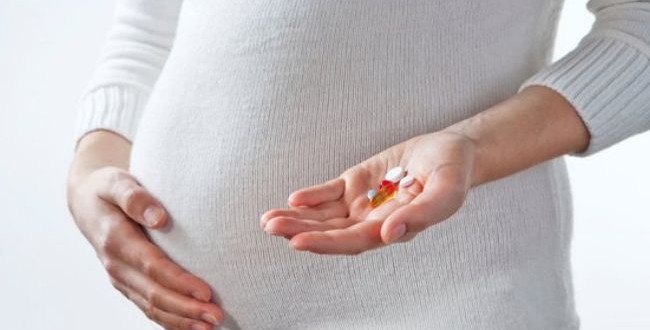If you’re one of the millions of women taking antidepressant medication and are thinking about getting pregnant, the results of a new study may calm some of your fears. Researchers say there is no increased risk in the development of heart defects in babies born to women taking antidepressants.
Researchers for the cohort study evaluated 949,504 pregnant women who were enrolled in Medicaid before and after delivery. The goal was to compare the risk for major cardiac defects among infants born to women who used selective serotonin reuptake inhibitors (SSRIs) and other antidepressants during the first trimester of pregnancy vs. women who did not use antidepressants. Cardiac malformations were classified as: any cardiac malformation, right ventricular outflow tract obstruction, ventricular septal defect or other.
In total, 6.8% of the women used antidepressants during the first trimester. The majority used SSRIs (4.9%), and others used bupropion (0.9%), serotonin norepinephrine reuptake inhibitors (SNRIs; 0.7%), a tricyclic antidepressant (0.6%) or another medication (0.7%). Among SSRI users, the most frequently prescribed drugs were sertraline, paroxetine and fluoxetine.
Cardiac defects were reported in 580 infants born to mothers who used antidepressants during pregnancy, or 90.1 cases per 10,000 infants, compared with 6,403 infants born to mothers who did not use antidepressants, or 72.3 cases per 100,000 infants.
Unadjusted analysis indicated increased risk for all classifications of cardiac malformations among infants exposed to antidepressants. Specifically, SSRIs (RR=1.25; 95% CI, 1.13-1.38), SNRIs (RR=1.51; 95% CI, 1.2-1.9), buproprion (RR=1.19; 95% CI, 0.95-1.49) and other antidepressants (RR=1.46; 95% CI, 1.16-1.83) were linked to increased risk for any cardiac malformation. However, these associations were attenuated upon adjusted analysis.
The RR for any cardiac defect among infants born to SSRI users was 1.12 (95% CI, 1-1.26) when analysis was restricted to women diagnosed with depression. Propensity score-adjusted analysis yielded a further reduced risk in this population (RR=1.06; 95% CI, 0.93-1.22).
The researchers observed no significant associations between use of paroxetine and right flow ventricular outflow tract obstruction, or between use of sertraline and ventricular septal defects.
Associations observed with other medications on unadjusted analysis were similarly reduced on fully adjusted analysis (RR=1.2; 95% CI, 0.91-1.57 for SNRI exposure; RR=0.92; 95% CI, 0.69-1.22 for bupropion; and RR=1.21; 95% CI, 0.91-1.6 for other antidepressants). Subgroup analyses indicated similar results regardless of age, race, antidepressant dose or monotherapy compared with polytherapy.
“Our results do not support earlier findings of an association between antidepressant use and cardiac anomalies; in particular, findings with respect to the use of paroxetine and sertraline,” the researchers concluded. “… The accumulated evidence implies low absolute risks and argues against important cardiac teratogenic effects associated with the most commonly used antidepressant medications.”
Agencies/Canadajournal

 Canada Journal – News of the World Articles and videos to bring you the biggest Canadian news stories from across the country every day
Canada Journal – News of the World Articles and videos to bring you the biggest Canadian news stories from across the country every day

